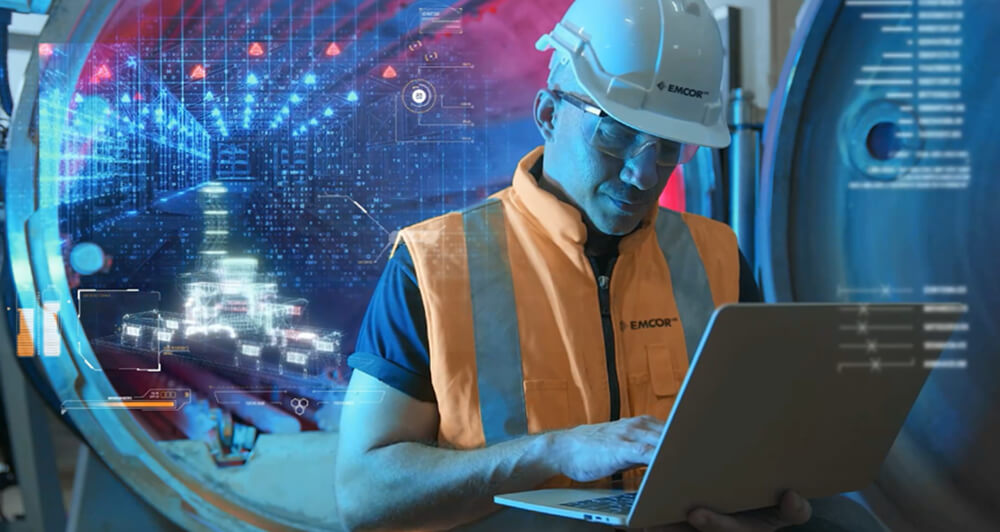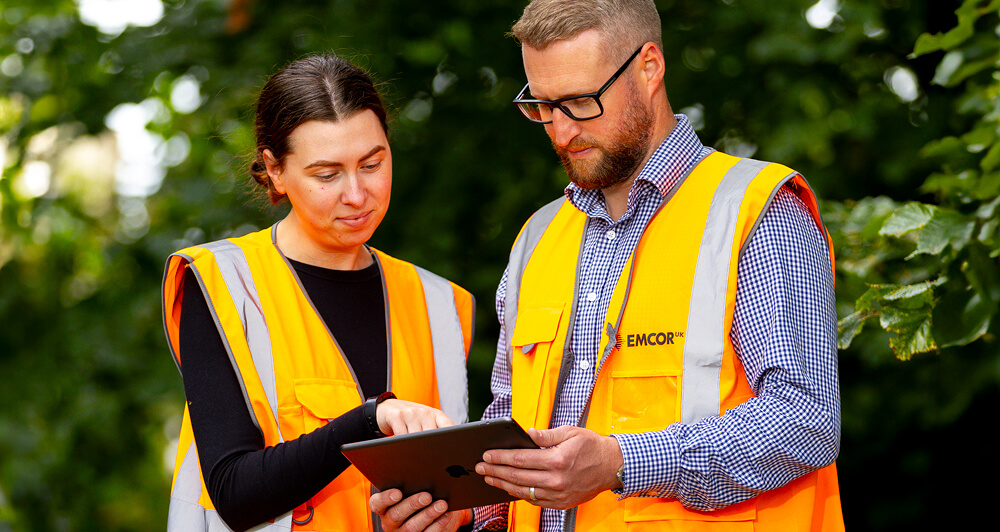Three predictions for the engineering sector in 2025
It’s estimated that around 80% of the buildings we’ll be using in 2050 have already been built.
For the FM sector, that means a lot of smart asset management and maintenance to enhance existing infrastructure, whether that involves making estates compliant or more sustainable.
To meet these goals, organisations need FM collaborators who understand their estates and cater to their needs. Engineering is the golden thread underpinning our FM work, providing critical support for estate management and sustainability goals.
Matt Kent, our director of engineering, has shared his top three predictions for the engineering industry, and in turn, the built environment, in 2025.
A new generation of engineers
The industry requires engineering innovations, but how can we achieve them without an experienced workforce?
Our industry has historically lacked apprenticeship opportunities and long-term skills-based work, resulting in an ageing workforce and, as the Electrical Contractors Association reports, a struggle to fill 12,000 roles yearly. That underinvestment will prevent new developments across the built environment.
This needs to change if we want to make engineering an attractive and viable career, but it is no small task. Without training for general engineering skills among a new workforce, it becomes even more difficult for organisations to recruit into more specialist, technical roles. This is especially concerning for roles engineers need to grow into through experience.
New starters and career longevity are needed so recruits can enter specialist, long-term careers like environmental engineering or data centre engineering.
The industry requires immediate action to increase investments into engineering apprenticeships, through partnerships with the Government and higher educational bodies. The Government’s recent announcement of funding for 4,700 new post-graduate places for engineers and scientists is a strong start.
I expect to see further investment into the future of the sector as we attract and nurture the new generation of engineers. This is something that needs to be pushed by numerous parties, not just the engineering sector, as so many other industries are reliant on our expertise.
Smart tech that drives efficiency
Decarbonisation is an ever-growing priority – AI monitoring software, IoT solutions and sensor technology were increasingly implemented in 2024 to help businesses make informed decisions and optimise maintenance.
This is especially pressing as recent return-to-work mandates suggest that overall office occupancy will increase in 2025. With that increase, I anticipate that reducing manual compliance risks will be a renewed focus, leveraging insights from smart data technology and helping us make strategic workplace decisions.
Advanced legionella detection is an example of the work underway. It is already a statutory requirement to routinely check the temperature of water in all commercial water systems, but when done manually with a thermometer, there is a risk that it may be non-compliant between checks. Though it would only remain that way for a short period, it is still a significant risk.
Smart sensor technology can monitor and action when a building’s systems need to be flushed, which greatly reduces the danger of legionella developing. I anticipate that the sensor technology present in the industry for the last few years, like vibration analysis, temperature sensors, electrical currents and voltage centres will grow more popular as engineers leverage their data for strategic decision-making.
I predict that the next wave of innovation will focus on integrating these smart technologies into unified platforms that provide a holistic view of building performance. This will empower engineers and facilities managers to predict maintenance needs, enhance compliance, and drive sustainability efforts more effectively. By streamlining decision-making and reducing manual intervention, businesses can achieve greater operational efficiency and create safer, more sustainable workplaces, benefiting both employees and the environment.
Increased focus on employee wellbeing
Advanced technologies will support compliance management, especially with the help of AI. Implementing AI into sensor technologies allows us to analyse thousands upon thousands of data points that we could not do manually, optimising how we operate. This is especially important for the trend of improving employee workplace wellbeing.
Technology like electronic changed-based Needlepoint Bipolar Ionisation (NPBI) in HVAC systems will grow in popularity as it helps us keep the workplace safe. NPBI is an air purification technology that ionises and filters out particles and kills pathogens, making the spread of disease far less likely and keeping people safe.
When the return to office spaces is a priority for many corporate organisations, improving their health and safety measures should go hand in hand.
2025 should be an exciting year for developing new technology, redeploying the smart technology we already have in use, and making engineering an exciting and long-term career prospect for more young people. That way, we can bolster the future of the engineering industry, and further enhance our customers’ service delivery.
If you would like to find out more about our engineering services, contact us today. Learn about our services here.



